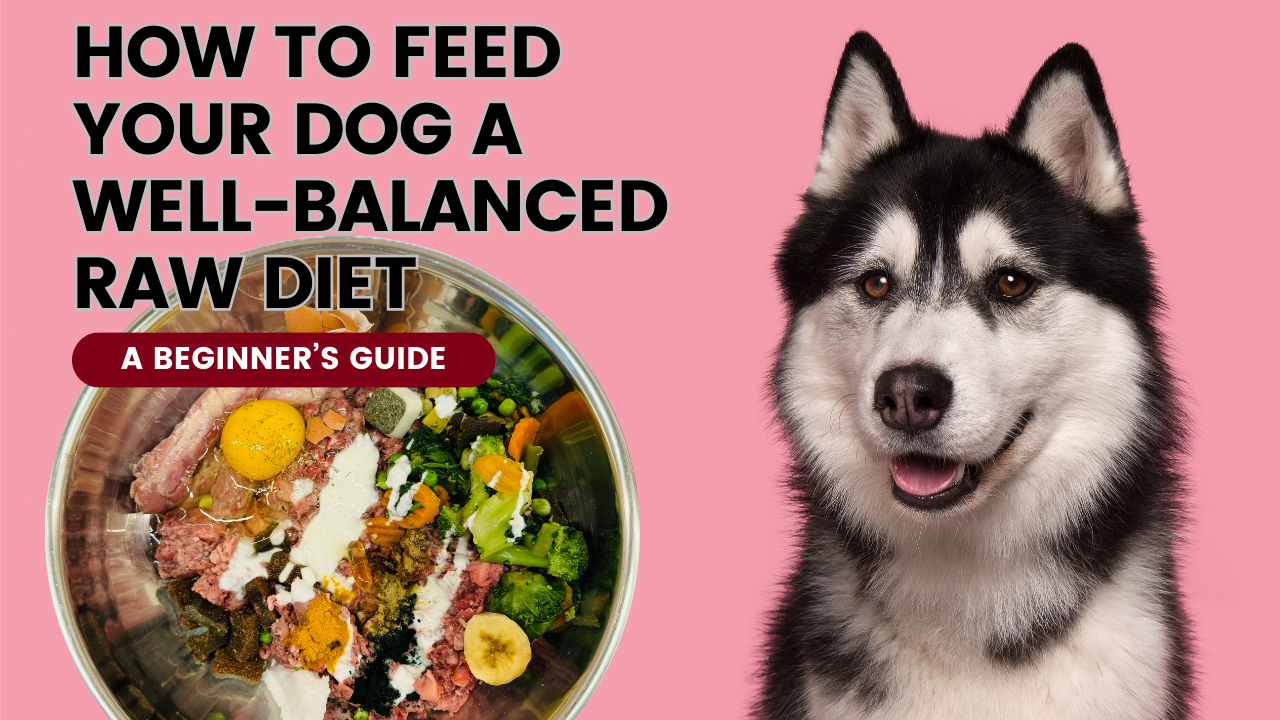Are you considering switching your furry friend to a raw diet? Feeding your dog a well-balanced raw diet can offer numerous health benefits, from improved digestion to a shinier coat. Here are seven reasons why you should switch to a raw diet. However, embarking on this journey requires careful consideration and planning to ensure your pup gets all the essential nutrients it needs. In this guide, we’ll explore the basics of feeding your dog a raw diet, including ingredient ratios, supplements, and essential ingredients to include.
Understanding the Ratios
When crafting a raw diet for your dog, it’s essential to maintain the right balance of meat, bones, and vegetables. A common ratio to follow is 80% meat, 10% bones, and 10% vegetables. This balance provides your dog with the protein, calcium, and essential nutrients they need for optimal health. Remember to vary the protein sources to offer a diverse array of nutrients and prevent deficiencies.
Essential Supplements
While a raw diet can provide many essential nutrients, some supplements can further enhance your dog’s health. Here are some supplements to consider incorporating into their diet:
- Curcumin: Known for its anti-inflammatory and antioxidant properties, curcumin can support your dog’s overall health and well-being.
- Omega 3 & 6: Essential for heart health, skin, and coat, omega-3 and omega-6 fatty acids can be sourced from fish oil or flaxseed oil.
- Spirulina: A powerful immune booster, spirulina can strengthen your dog’s immune system and support their overall health.
- EPA & DHA: Found in fish oil, EPA and DHA are crucial for cardiovascular health and cognitive function.
- Greenlip Mussel: Rich in nutrients, greenlip mussel can promote healthy joints and reduce inflammation.
- MSM, Glucosamine, and Chondroitin: These supplements are essential for maintaining healthy joints, reducing chronic pain, and supporting joint repair.
- Medicinal Mushrooms: Beneficial for brain and nervous system health, medicinal mushrooms can also boost the immune system, making them particularly useful for dogs with cancer.
- Probiotics and Kefir: Important for gut health, probiotics and kefir can promote a healthy digestive system and strengthen the immune system.
- Raw Honey: A natural antioxidant, raw honey can support your dog’s overall health and provide added sweetness to their diet.
- Blueberries, Banana, Broccoli, and Pumpkin: These fruits and vegetables are rich in vitamins, minerals, and fiber, promoting overall health and supporting digestion.
- Eggs: A great source of protein and essential nutrients, eggs can benefit your dog’s joints and nervous system.
- Sardines and Liver: Sardines are anti-inflammatory and beneficial for brain, skin, and coat health, while liver is an immune booster and nutrient-rich addition to your dog’s diet.
- Coconut Oil and Olive Oil: These oils offer numerous health benefits, including supporting gut health, brain function, and skin and coat health, while also providing anti-inflammatory properties.
Crafting a Meal Plan
When planning your dog’s meals, aim for variety and balance. Include a mix of protein sources, such as chicken, beef, lamb, turkey, fish, and various vegetables and fruits. Rotate supplements regularly to ensure your dog receives a broad spectrum of nutrients.
Transitioning to a Raw Diet
If your dog is currently on a commercial diet, it’s essential to transition gradually to a raw diet to avoid digestive upset. Start by feeding raw in the morning and commercial food in the evening, or the other way around. The quantities may also differ. There are various tools online that help you calculate how many grams of meat, bones and veggies you should feed your dog based on their weight, age, activity level, and other factors. For example, my huskies get the same amount of meat as my big dogs, which are twice their weight, because they consume much more energy.
Consult with a Veterinarian
Before making any significant changes to your dog’s diet, consult with your veterinarian. They can offer personalised guidance based on your dog’s age, breed, and health status, ensuring they receive a well-balanced diet that meets their unique nutritional needs.
Feeding your dog a well-balanced raw diet can be a rewarding experience, providing them with the nutrients they need to thrive. With careful planning, proper supplementation, and regular veterinary check-ups, you can ensure your furry companion enjoys optimal health and vitality on their raw food journey.

